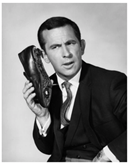Facebook and “Future Community”
 Like many of you, we’ve been keeping an eye on the Facebook privacy issue. However, unless it’s central to your job (aka tech pundits), most people are way too busy to keep up with the changing features and policies from week to week, or all the particulars of the last brouhaha. Still, if you took the time to look closely enough to form an opinion, you may have found yourself being pulled in one direction or another – meaning the privacy camp or the open social graph camp.
Like many of you, we’ve been keeping an eye on the Facebook privacy issue. However, unless it’s central to your job (aka tech pundits), most people are way too busy to keep up with the changing features and policies from week to week, or all the particulars of the last brouhaha. Still, if you took the time to look closely enough to form an opinion, you may have found yourself being pulled in one direction or another – meaning the privacy camp or the open social graph camp.
When Facebook became available en masse, most of us made immediate connections to other early adopters and soon prodded colleagues, friends and family to join. For many, the next wave was locating people from our past – forging lost bonds with old flames, childhood friends, high school classmates and the like. Facebook soon became a part of our present and our past, with a constant stream of personal updates and suggestions to connect with new and/or old friends. For some, Facebook offered immersion in virtual worlds and, in essence, membership in new — and sometimes addicting — communities, created by social games such as Farmville and Mafia Wars.
Over time, our attachment to Facebook continued to become exceedingly more and more personal. Lest we forget, it’s a business. And so it goes – with more personal details come more opportunities for marketing and selling to your every interest. Being in a constant state of evolution to develop revenue streams and achieve profitability is as much a part of Facebook’s soul as the free services they provide to both you and me.
As we look more closely at the privacy issues and the idea of “future community” experiences, it’s easy to see that having a say when it comes to who you are connected to within the Facebook social graph is vital. While some users may have been gung-ho to share “Activities, Interests, Music, Movies, Books, Television” with “Friends” past and present; they don’t want to be connected to everyone else on Facebook who lists “Bossanova” and “Sublime” in the Music field of their Profile. The “disconnect” in this instance was between intention and execution. Similarly, most users intended to share favorite musical genres and artists, along with Interests like running, wine and yoga, with their present and past communities. Then, Facebook decided – without user consent – to connect us to new “future communities” of others on Facebook who listed the same information.
Thankfully, Facebook recently heeded the outcries of some of the public and rolled out new privacy controls (further explained here). But, it certainly sparks some thought… What community experiences do you seek in general? How are such experiences the same or different via Facebook?
A curious and social group, we thrive on interacting with new people, otherwise known as “future community.” So whether it’s the staff and patrons at local coffee shops, other parents and children at the playground, the checkers and baggers at our local markets, or strangers at the airport — these polite chats and sometimes surprising and inspired conversations comprise connections with others that nurture humanity and individual creativity and kindness. So back to the question: How are such experiences the same or different via Facebook?
Just like the offline examples above, certainly possibilities to make meaningful connections as part of a “future community” via Facebook do exist. Facebook sees these potential benefits whether it be connections with advertisers or other individuals. For now, I can accept the advertisements that key off some of my personal data (it’s a business after all), but I can also be at ease that who I count as part of my “future community” is up to me.
How does Facebook power community for you?


